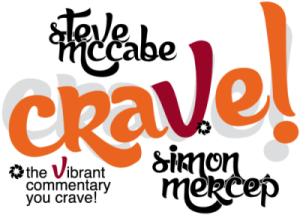
It’s a remarkable show that opens and closes with Dave Dobbyn, and takes in Six60, SWIDT and the Dilworth Choir along the way, but, let’s face it, You Are Us/Aroha Nui was always going to be a remarkable show.
A few short weeks on from the atrocity visited upon Christchurch, New Zealand continues to come together, sharing both a sense of community and unity, and also an utter rejection of the divisiveness and hatred that left fifty of us dead. In that spirit, dozens of New Zealand musicians put on a concert that both raised money — we don’t quite know how much yet; I hope it’s a very large amount — to support the families who were robbed of their loved ones, and reminded anyone who was watching that Kiwis are the people who suffered, not the person who caused the suffering.

Led by Mike King, and opening with a waiata and karanga from Sharon Hawke of Ngāti Whatua, You Are Us/Aroha Nui was, ostensibly, a musical event, but, let’s be clear here, it wasn’t about the music. It was about people like Rachel O’Connor, Red Cross New Zealand’s general manager for migration, who invited anyone who’d listen to support migrants more, or Jacinda Ardern, who spoke on video from her office in Wellington to remind us that the whole country must come together to support the whole country, it was about, most importantly of all, Ikhlaq Kashkari, the president of the New Zealand Muslim Association, whose message was strong and clear: “We cannot be separated by hate. We are all New Zealanders.”

This message was the theme of the evening, from Illbaz’s sweatshirt, signed by Dobbyn, making clear what we all thought of racists (King had the audience chant it loud) to Stan Walker — and the entire audience — singing God Defend New Zealand with a depth of emotion I’ve never heard it invested with.
But the music was always going to be at the heart of the evening. With a couple of dozen artists in various combinations, starting, quite aptly, with Dave Dobbyn singing Welcome Home, there was something for everyone to enjoy, and, to be fair, to be less thrilled by. While I could have lived quite happily without Swidt, and I could tell I was in a very, very small minority in not wholeheartedly embracing Shapeshifter, it would have taken a very coldhearted concertgoer to fail to be moved by an eye-patched Jason Kerrison singing Hallelujah with the Dilworth Choir backing him, a performance that cleaved closely to the definitive Jeff Buckley reading. Mitch James’ take on Angels, the Robbie Williams anthem, was a highlight, along with Seth Haapu’s rendering of Don’t Dream It’s Over, New Zealand’s other national anthem, in te reo Māori, which Walker took over in English and which had the St. John Ambulance lady in the wings singing quite gloriously unselfconsciously. Marlon Williams, currently perhaps New Zealand’s hottest musical export, thanks to his appearance in what Mike King described as “that movie that should have won the best picture Oscar,” played Make Way For Love, “the only song I have that’s not about terrible things” but one that fitted the mood of the night, even if it felt, with its pizzicato violin accompaniment, just a tiny bit odd. Stan Walker’s near-a cappella Amazing Grace was, well, amazing, while CHAII Tiggered her way across the stage in what could possibly have been her pyjamas, Illbaz backed a handful of rappers who sang over his beats, and Shapeshifter and Six60 played short but intense sets that clearly were the highlight of many people’s nights.

It was, then, an eclectic show. There were occasional weak moments, inevitably. Anika Moa is always great value — there are few performers, Kiwi or otherwise, who can engage an audience with such effortless warmth. Odd, then, that she sang alongside Hollie Smith, who, quite frankly, looked bored and unsure of why she was even there until it was time to sing her verses, and when she did, she massively over-emoted her way through How Great Thou Art, eclipsing her second duet partner, Teeks. To be fair, though, she went some way toward redeeming herself when she sang Bathe In The River with Don McGlashan, but her performance was not typical of You Are Us. And I would definitely question the decision to raise a gloved-fist, Black Panther style, during SWIDT’s set — the rest of the show was very much in the spirit of the London side of Live Aid, with only this moment starting to resemble the private-agenda hijacking that beset the Philadelphia half of the event that became the template that informs shows like You Are Us.
But those are minor quibbles. You Are Us/Aroha Nui was a time for try to help New Zealand heal, and to show that we all — every single one of us — stands with the people of Christchurch, our Muslim whānau most of all, and after Beside You, which he sang with Bic Runga, Dobbyn led the whole cast, and indeed the entire audience, of the evening through Slice Of Heaven.
A month ago New Zealand was appalled by the acts of one man. Last night, New Zealand was reminded of who we should be, and who we clearly aspire to be.
A second concert will be held in Christchurch this coming Wednesday, 17th April. For full details, including how to buy tickets, click here.
































































































































